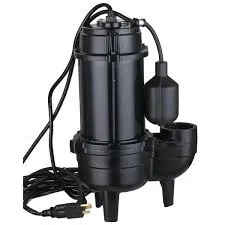Somali
- Afrikaans
- Albanian
- Amharic
- Arabic
- Armenian
- Azerbaijani
- Basque
- Belarusian
- Bengali
- Bosnian
- Bulgarian
- Catalan
- Cebuano
- Corsican
- Croatian
- Czech
- Danish
- Dutch
- English
- Esperanto
- Estonian
- Finnish
- French
- Frisian
- Galician
- Georgian
- German
- Greek
- Gujarati
- Haitian Creole
- hausa
- hawaiian
- Hebrew
- Hindi
- Miao
- Hungarian
- Icelandic
- igbo
- Indonesian
- irish
- Italian
- Japanese
- Javanese
- Kannada
- kazakh
- Khmer
- Rwandese
- Korean
- Kurdish
- Kyrgyz
- Lao
- Latin
- Latvian
- Lithuanian
- Luxembourgish
- Macedonian
- Malgashi
- Malay
- Malayalam
- Maltese
- Maori
- Marathi
- Mongolian
- Myanmar
- Nepali
- Norwegian
- Norwegian
- Occitan
- Pashto
- Persian
- Polish
- Portuguese
- Punjabi
- Romanian
- Russian
- Samoan
- Scottish Gaelic
- Serbian
- Sesotho
- Shona
- Sindhi
- Sinhala
- Slovak
- Slovenian
- Somali
- Spanish
- Sundanese
- Swahili
- Swedish
- Tagalog
- Tajik
- Tamil
- Tatar
- Telugu
- Thai
- Turkish
- Turkmen
- Ukrainian
- Urdu
- Uighur
- Uzbek
- Vietnamese
- Welsh
- Bantu
- Yiddish
- Yoruba
- Zulu
Telephone: +86 13120555503
Email: frank@cypump.com
Oct . 12, 2024 08:01 Back to list
Effective Solutions for Wastewater Pumping Systems and Their Optimization Techniques
The Importance of Wastewater Pumps in Modern Waste Management
Wastewater management is an essential aspect of maintaining a clean and healthy environment. At the heart of this process lies a variety of technologies designed to handle wastewater efficiently, among which wastewater pumps play a critical role. These pumps are not just mechanical devices; they embody the progress of civil engineering and environmental management, ensuring that waste is removed swiftly and safely from residential and industrial areas.
Understanding Wastewater Pumps
Wastewater pumps are specially designed to transport wastewater, which includes a mixture of water and various pollutants, from point A to point B. They serve a fundamental function in sewage systems, lifting wastewater from lower elevation areas to treatment facilities or to a point for further processing. The types of wastewater pumps vary widely, ranging from submersible pumps to centrifugal pumps, each designed for specific applications.
Submersible Pumps As the name suggests, submersible pumps are submerged in the wastewater they are pumping. They are often used in residential settings, commonly found in basement sump pits, where they help prevent flooding by removing excess water.
Centrifugal Pumps These pumps use rotational energy to move water through the system. They are widely utilized in large-scale wastewater treatment plants due to their capacity and efficiency in handling large volumes of liquid.
The Role in Environmental Protection
One of the primary benefits of wastewater pumps is their role in protecting the environment. By ensuring that wastewater is promptly removed from urban areas and industries, these pumps help prevent overflows and backups that can lead to contamination of water bodies. Polluted water can have devastating effects on local ecosystems, potentially harming aquatic life and creating public health risks.
waste water pumps

Additionally, by efficiently transporting wastewater to treatment facilities, pumps enable better processing of waste, allowing for the recycling of water or its safe return to natural water sources. This contributes to water conservation efforts and the overall sustainability of water resources.
Enhancing Public Health
Wastewater pumps also play a vital role in safeguarding public health. Inadequate waste management can lead to the spread of diseases, especially in densely populated urban areas where large volumes of wastewater are generated. By ensuring that sewage is properly transported and treated, wastewater pumps help mitigate health risks associated with unsanitary conditions.
Effective pumping systems can help in managing stormwater as well, which is crucial during heavy rainfall. Excess stormwater can overwhelm sewer systems, leading to overflows. By strategically utilizing pumps, municipalities can manage stormwater more efficiently, reducing the risk of flooding and ensuring that contaminated water does not enter natural waterways.
Technological Advancements
The field of wastewater management is not static; continuous technological advancements have led to the development of smarter and more efficient pumps. Modern pumps come equipped with sensors and monitoring systems that optimize their operation, allowing for real-time adjustments based on demand and conditions. This not only conserves energy but also extends the lifespan of the pumps, leading to lower maintenance costs.
Conclusion
In conclusion, wastewater pumps are an integral component of our waste management systems. Their role in environmental protection, public health safety, and technological innovation cannot be understated. As urban areas continue to grow and water scarcity becomes a more pressing concern, the efficiency of wastewater management, powered by advanced pumping solutions, will be crucial in ensuring sustainable practices for future generations. The continuous improvement in pump technologies will play a significant part in achieving a cleaner, safer, and more sustainable world.
-
ISG Series Vertical Pipeline Pump - Chi Yuan Pumps Co., LTD.|High Efficiency, Energy Saving, Low Noise
NewsJul.30,2025
-
ISG Series Vertical Pipeline Pump- Chi Yuan Pumps|High Efficiency&Low Noise
NewsJul.30,2025
-
ISG Series Vertical Pipeline Pump-Chi Yuan Pumps Co., LTD.|High Efficiency&Energy Conservation
NewsJul.30,2025
-
ISG Series Vertical Pipeline Pump - Chi Yuan Pumps Co., LTD.|Advanced Hydraulic Design&Energy-Efficient Solutions
NewsJul.30,2025
-
ISG Series Vertical Pipeline Pump - Chi Yuan Pumps Co., LTD.
NewsJul.30,2025
-
ISG Series Vertical Pipeline Pump - Chi Yuan Pumps Co., LTD.|energy-efficient fluid handling&industrial durability
NewsJul.30,2025










